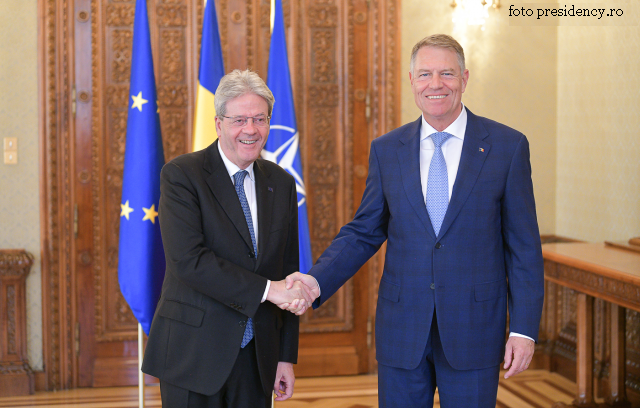European plan for refugees
The European interior ministers have approved a plan on the war refugees from Ukraine.

Roxana Vasile, 29.03.2022, 13:50
The European interior ministers, meeting in Brussels in a special Council meeting, on Monday approved a ten-point plan for a better coordination in relation to the Ukrainian refugees. The plan envisages the immediate creation of a temporary registration platform for those entering the Union, the development of refugee transport centers, the mapping of reception capacities in the Member States and the establishment of a needs index in each European country. At the same time, based on indications related to the danger of human trafficking, the European multidisciplinary platform against the threat of organized crime has been activated, and Europol supports the authorities of the EU countries in this field.
According to European Commissioner Ylva Johansson, about 3.8 million people so far, mostly women, children, and old people have fled the Russian offensive in Ukraine. The number of daily arrivals in the European Union has decreased from 200 thousand, which was the peak of the refugee influx, to about 40 thousand, at present. Most people have chosen to take refuge in Poland, Austria and the Czech Republic, which is why Ms Ylva Johansson believes that refugees should be encouraged to also choose other European countries as their destinations.
There are no allocation quotas, and, at the moment, the talks between the EU member states to take some of the burden off the shoulders of the states, including non-EU states, bordering Ukraine, are based solely on volunteering. Thus, France, Germany, Austria and the Netherlands have already offered to take over almost 15,000 refugees from the small and poor Republic of Moldova, overwhelmed by the huge influx of Ukrainians.
Almost 600,000 people have entered Romania, which is also neighboring Ukraine, but most of them only to transit towards Western Europe. Against the background of the support actions undertaken by the Romanian State, on Monday, the Romanian Senate adopted an emergency ordinance that establishes the granting of humanitarian support and assistance to foreign citizens from Ukraine in special situations. The decision-making body in this case is the Chamber of Deputies.
Meanwhile, European Commissioners continue to pay visits to Bucharest. Early this week, European Commissioner for Economy, Paolo Gentiloni, came to Bucharest to talk to the Romanian authorities about the integration of refugees on the labor market, in the school system, and also about social and health insurance. The Romanian President, Klaus Iohannis, requested, during his meeting with the European Commissioner, flexibility regarding the unused financial resources in the period 2014-2020, so that they can be used for the management of the Ukrainian refugee crisis. Actually, the European Commission intends to provide up to 17 billion Euros, part of which comes from unused budget funds in the above-mentioned financial year, for the countries that take over the most refugees. (LS)






























